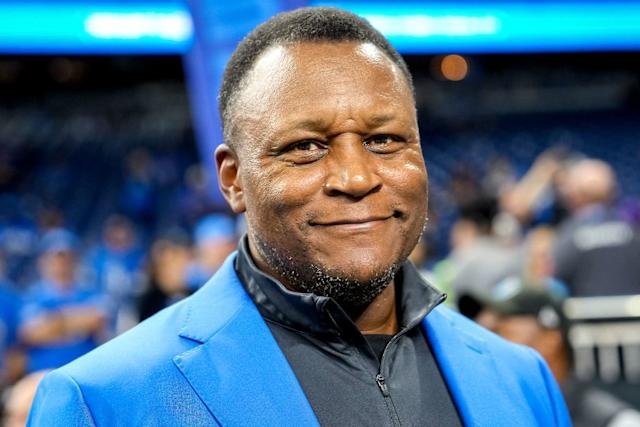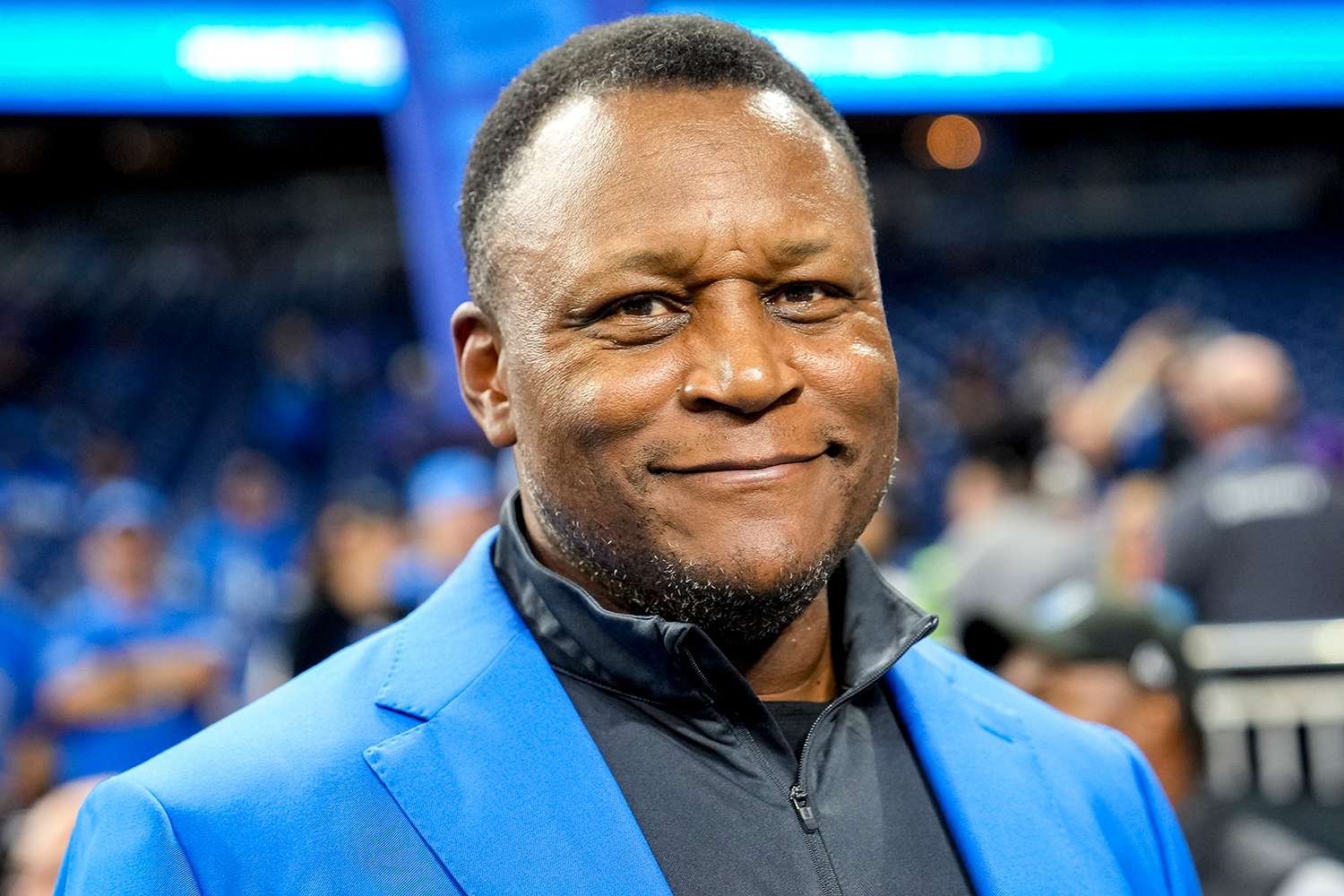
When the news first broke that Barry Sanders had suffered a heart attack, fans around the world gasped in disbelief. Barry Sanders—the seemingly invincible, always graceful NFL legend—was suddenly humanized in a way no one saw coming. This article takes a deep dive into what happened, how Sanders handled it, and the larger conversation it sparks about athlete health.
Who is Barry Sanders?
A Legendary NFL Career
Barry Sanders is a name that resonates with anyone who loves football. Born on July 16, 1968, Sanders played his entire professional career as a running back for the Detroit Lions. Known for his extraordinary agility, quick cuts, and jaw-dropping runs, Sanders racked up 15,269 rushing yards and 99 touchdowns over just 10 seasons.
Even after retiring abruptly in 1999 at the age of 31, Sanders remained a beloved figure in the sports world. His decision to walk away at his peak made him even more of a legend—a man who chose personal peace over chasing more records.
Retirement and Life After Football
After leaving the NFL, Barry Sanders lived a relatively private life. Unlike many athletes who chase media careers, Sanders preferred a quieter existence, spending time with his family, engaging in charity work, and occasionally appearing for NFL events. But no matter how private his life became, his fans never stopped caring.
Health Scares Among Athletes: A Growing Concern

The Pressure of Professional Sports
Being a professional athlete isn’t just glamorous contracts and highlight reels. The physical and emotional stress they endure can take a toll on their bodies, both during and after their careers.
Common Health Risks for Retired Athletes
Retired athletes often face unique health challenges like:
- Heart problems
- Joint issues
- Mental health struggles
- Weight fluctuations
- Chronic injuries
Barry Sanders, despite his relatively short career, was not entirely immune to these risks.
The Breaking News: Barry Sanders’ Heart Attack
When Did It Happen?
In mid-2024, Barry Sanders reportedly experienced a heart attack. While the full medical details were not initially disclosed, credible sources confirmed that Sanders was hospitalized after experiencing chest pains and shortness of breath.
Public Reaction and Media Frenzy
As expected, the media went into overdrive. News outlets, blogs, and social media platforms lit up with concern, prayers, and in some cases, wild speculation. But at the core of all this noise was a shared sense of shock: Barry Sanders, the embodiment of peak athleticism, had suffered a heart attack.
What We Know About Barry Sanders’ Health Condition
The Immediate Medical Response
Thanks to quick medical attention, Sanders received life-saving care almost immediately. Emergency medical personnel acted swiftly, administering treatments that stabilized him before performing further tests.
Sanders’ Recovery Journey
Fortunately, reports indicate that Sanders responded well to treatment and was released from the hospital within days. He has since been following a strict regimen of medications, diet, and cardiac rehabilitation exercises to aid his recovery.
Understanding Heart Attacks: A Quick Guide
What is a Heart Attack?
A heart attack occurs when blood flow to a part of the heart is blocked, usually by a blood clot. Without oxygen-rich blood, that part of the heart can suffer serious damage.
Symptoms and Warning Signs
Typical symptoms include:
- Chest pain or discomfort
- Shortness of breath
- Nausea or vomiting
- Lightheadedness
- Pain in arms, back, neck, or jaw
Causes and Risk Factors
Factors that may contribute to a heart attack include:
- High blood pressure
- High cholesterol
- Smoking
- Diabetes
- Family history of heart disease
- Poor diet and lack of exercise
The Role of Genetics and Lifestyle
Family History in Sanders’ Case
Though Sanders lived an active lifestyle, he may have inherited genetic predispositions for heart disease. Many athletes incorrectly assume that peak fitness shields them entirely from such risks.
Impact of Athletic Lifestyle
High-intensity sports can put enormous strain on the cardiovascular system. Years of pushing the body to its limits might contribute to heart issues later in life, particularly if regular medical monitoring isn’t prioritized.
Barry Sanders’ Own Statements
His First Interview Post-Heart Attack
When Sanders finally broke his silence, he was calm and candid. He thanked his medical team, family, and fans for their support, emphasizing that quick action saved his life.
The Message to His Fans
Sanders urged everyone—especially men over 40—to prioritize their heart health, get regular check-ups, and listen to warning signs their bodies may send. “You’re never too tough to see a doctor,” he said.
Reactions from the NFL Community
Teammates and Coaches Speak Out
Former teammates like Herman Moore and coaches from his Detroit Lions days spoke of their relief that Sanders was recovering well. Many shared personal stories of Sanders’ humility and work ethic.
NFL and Players’ Union Statements
Both the NFL and the NFL Players Association issued statements wishing Sanders a full recovery and emphasizing the need for ongoing health support for retired players.
The Fan Community: Support and Speculations
The Outpouring of Support
Fans flooded social media with messages of support, sharing favorite memories of Sanders’ electrifying runs and classy demeanor.
Misinformation and Rumors
Unfortunately, the internet also became a breeding ground for rumors, with some falsely claiming that Sanders’ condition was more critical than reported. His representatives worked hard to dispel these rumors and provide accurate updates.
How This Incident Shines Light on Athlete Health
The Need for Regular Check-Ups
Sanders’ heart attack highlights the importance of consistent medical check-ups, even for retired athletes who may appear outwardly healthy.
The NFL’s Health Monitoring Programs
The NFL has been making strides with its health monitoring programs, offering regular screenings and resources. But many argue more comprehensive lifelong support is needed.
Barry Sanders Today: His Current Health Status
Ongoing Health Management
As of early 2025, Sanders continues to recover, adhering to medical advice and leading a heart-healthy lifestyle.
His Advocacy for Heart Health Awareness
Now, Sanders uses his platform to advocate for better heart health awareness, participating in campaigns aimed at educating the public about prevention and early detection.
Life Lessons from Barry Sanders’ Experience
Importance of Listening to Your Body
One of Sanders’ key messages is to never ignore discomfort or unusual symptoms. Early intervention can make all the difference.
Stress Management Post-Retirement
Retirement doesn’t always mean relaxation. Sanders stresses the importance of managing stress even after stepping away from a high-pressure career.
The Broader Conversation: Health Care for Retired Athletes
Are Athletes Getting Enough Support?
Many believe retired athletes still lack sufficient healthcare support. While the NFL has made progress, gaps remain in long-term care and monitoring.
What Needs to Change?
Experts call for:
- Mandatory annual heart screenings
- Mental health support
- Lifestyle coaching for retired players
- Comprehensive insurance coverage

